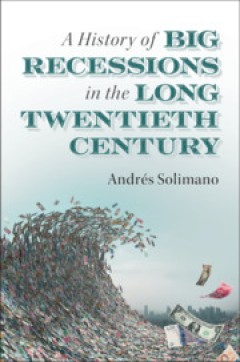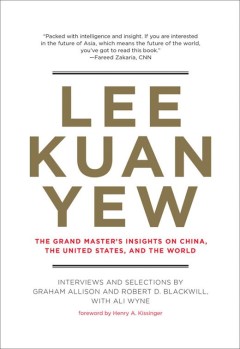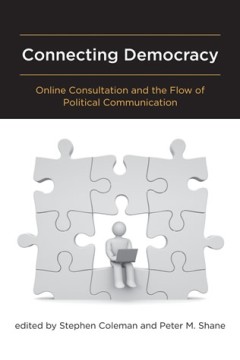Filter by

Why America Is Not a New Rome
An investigation of the America-Rome analogy that goes deeper than the facile comparisons made on talk shows and in glossy magazine articles.America's post-Cold War strategic dominance and its pre-recession affluence inspired pundits to make celebratory comparisons to ancient Rome at its most powerful. Now, with America no longer perceived as invulnerable, engaged in protracted fighting in Iraq…
- Edition
- -
- ISBN/ISSN
- 9780262283885
- Collation
- -
- Series Title
- -
- Call Number
- -

Fascist pigs :technoscientific organisms and the history of fascism
How the breeding of new animals and plants was central to fascist regimes in Italy, Portugal, and Germany and to their imperial expansion.OCLC-licensed vendor bibliographic record.
- Edition
- -
- ISBN/ISSN
- 9780262335706
- Collation
- 1 online resource.
- Series Title
- -
- Call Number
- -

Entangled geographies: Empire and technopolitics in the global Cold War
The Cold War was not simply a duel of superpowers. It took place not just in Washington and Moscow but also in the social and political arenas of geographically far-flung countries emerging from colonial rule. Moreover, Cold War tensions were manifest not only in global political disputes but also in struggles over technology. Technological systems and expertise offered a powerful way to shape …
- Edition
- -
- ISBN/ISSN
- 9780262295710
- Collation
- 1 online resource (viii, 337 pages) :illustrations, maps.
- Series Title
- -
- Call Number
- -

A History of Chile, 1808–2002
A History of Chile chronicles the nation's political, social, and economic evolution from its independence until the early years of the Lagos regime. Employing primary and secondary materials, it explores the growth of Chile's agricultural economy, during which the large landed estates appeared; the nineteenth-century wheat and mining booms; the rise of the nitrate mines; their replacement by c…
- Edition
- -
- ISBN/ISSN
- 9780511991189
- Collation
- -
- Series Title
- Cambridge Latin American Studies
- Call Number
- -

A History of Chile 1808–2018
As Chile has continued to grow and prosper in the twenty-first century, this new edition of the definitive history of the country brings the story of its political, social and cultural development up to date. It describes how Ricardo Lagos and Michelle Bachelet, both highly educated Socialists, modernized the country and integrated new interests into Chilean political life, and how the billiona…
- Edition
- -
- ISBN/ISSN
- 9781009170222
- Collation
- -
- Series Title
- Cambridge Latin American Studies
- Call Number
- -

Industrial Policy for National Champions
In this text prominent economists present the pros and cons of government support for national champions of industry over political governance.OCLC-licensed vendor bibliographic record.
- Edition
- -
- ISBN/ISSN
- 9780262298650
- Collation
- 1 online resource (xii, 206 pages) :illustrations.
- Series Title
- -
- Call Number
- -

A History of Big Recessions in the Long Twentieth Century
This book examines the array of financial crises, slumps, depressions and recessions that happened around the globe during the twentieth and early twenty-first centuries. It covers events including World War I, hyperinflation and market crashes in the 1920s, the Great Depression of the 1930s, stagflation of the 1970s, the Latin American debt crises of the 1980s, the post-socialist transitions i…
- Edition
- -
- ISBN/ISSN
- 9781108755276
- Collation
- -
- Series Title
- -
- Call Number
- -

Lee Kuan Yew : the grand master's insights on China, the United States, and t…
When Lee Kuan Yew speaks, presidents, prime ministers, diplomats, and CEOs listen. Lee the founding father of modern Singapore and its prime minister from 1959 to 1990 has honed his wisdom during more than fifty years on the world stage.OCLC-licensed vendor bibliographic record.
- Edition
- -
- ISBN/ISSN
- 0262312735
- Collation
- 1 online resource (xxviiiI, 186 pages).
- Series Title
- -
- Call Number
- -

Connecting democracy :online consultation and the flow of political communica…
From the publisher. The global explosion of online activity is steadily transforming the relationship between government and the public. The first wave of change, "e-government," enlisted the Internet to improve management and the delivery of services. More recently, "e-democracy" has aimed to enhance democracy itself using digital information and communication technology. One notable example o…
- Edition
- -
- ISBN/ISSN
- 9780262298803
- Collation
- 1 online resource (ix, 423 pages)
- Series Title
- -
- Call Number
- -

The Global Biopolitics of the IUD: How Science Constructs Contraceptive Users…
This is a biography of a multifaceted technological object, the IUD. The book illuminates how political contexts shaped contraceptive development, marketing, use, and users.OCLC-licensed vendor bibliographic record.
- Edition
- -
- ISBN/ISSN
- 9780262298452
- Collation
- 1 online resource (xvi, 238 pages).
- Series Title
- -
- Call Number
- -
 Computer Science, Information & General Works
Computer Science, Information & General Works  Philosophy & Psychology
Philosophy & Psychology  Religion
Religion  Social Sciences
Social Sciences  Language
Language  Pure Science
Pure Science  Applied Sciences
Applied Sciences  Art & Recreation
Art & Recreation  Literature
Literature  History & Geography
History & Geography